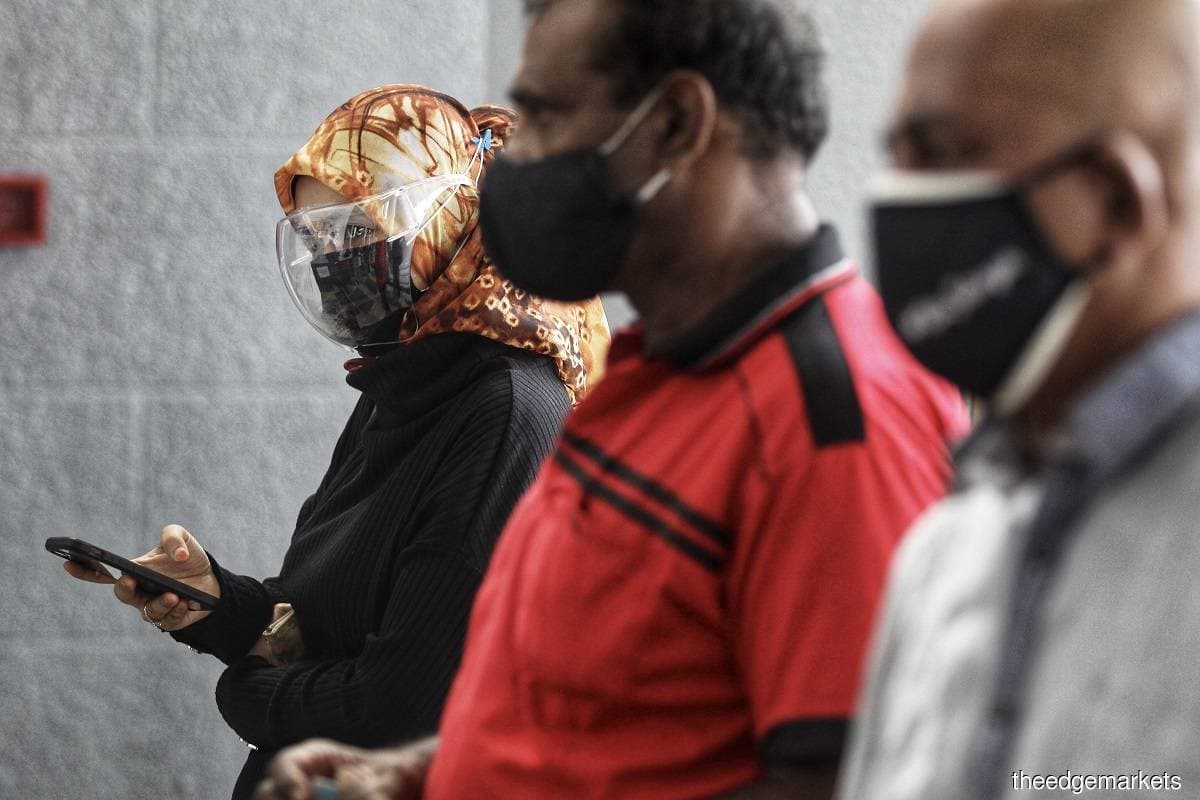
KUALA LUMPUR (Sept 7): The use of face masks indoors is now optional after it was made mandatory since the outbreak of the Covid-19 pandemic.
In a statement on Wednesday (Sept 7), Health Minister Khairy Jamaluddin said this is based on the assessment of the current situation of Covid-19, as well as after taking into account the current needs.
However, premise owners can determine whether visitors must wear a face mask or can choose to wear a face mask.
In addition, the public are highly encouraged to wear face masks, given that it has been proven to reduce the spread of infection.
“This new protocol will come into force immediately today (Wednesday). The Ministry of Health (MOH) will continue to monitor the Covid-19 situation at home and abroad, in addition to ensuring that health services are in optimal condition to ensure the well-being of the people in the face of Covid-19.
“This flexibility does not mean that the public can take the risk of Covid-19 infection lightly,” he said.
With this relaxation, Khairy noted that the people have to take on greater individual responsibility to protect not only themselves, but the entire community.
He said the MOH believes that the public will continue to practise the best self-control, including ensuring personal hygiene, to avoid contracting infectious diseases including Covid-19 as is currently practised.
Since May 1, the wearing of face masks was only mandatory when inside buildings (indoors) and in public transport, including e-hailing services.
Meanwhile, Khairy elaborated that the use of a face mask is still mandatory for positive cases of Covid-19, besides those using public transport services such as buses, trains, taxis including e-hailing services, airplanes, as well as buses, employee vans and school vans.
This is in addition to those in health facilities, such as hospitals, clinics, care homes, hemodialysis centres and equivalent.
“The MOH also strongly encourages the use of face masks to continue to be practised, especially in crowded areas such as night markets, stadiums, shopping malls and houses of worship.
“[Additionally], individuals with symptoms such as fever, cough and cold, [besides] individuals at high risk such as the elderly, people with chronic diseases, individuals with low immunity and pregnant mothers, [as well as] those doing activities with high-risk people such as the elderly and children [are encouraged to wear a face mask],” he said.
Khairy reiterated that the requirements for wearing face masks outdoors and in open areas are the same as previously announced, which is not mandatory.
However, he said the MOH encourages continued use of face masks outdoors — in crowded areas, and for individuals with symptoms such as fever, cough and cold, as well as individuals at high risk, and when doing activities with high-risk people such as the elderly and children.
Ongoing public health prevention, control activities helped reduce Covid-19 cases and stabilise health service system
According to Khairy, Malaysia has been in the endemic transition phase since April 1, and to ensure that the spread of Covid-19 cases is controlled safely and effectively, the MOH has implemented various public health prevention and control activities.
This includes the Covid-19 vaccination programme as well as case management through administration of Paxlovid, an antiviral drug to reduce the symptoms of Covid-19.
“Ongoing public health prevention and control activities, as well as public awareness of the importance of practising preventive measures, have helped contribute to the reduction of Covid-19 cases and stabilise the health service system, with the rate of admission of Covid-19 cases to hospitals and intensive care units (ICUs) being low,” he said.
As of Sept 6, the capacity utilisation of the MOH’s Covid-19 facilities for non-critical beds stood at 21%, or 1,264 patients out of 6,037 beds, and the figure stood at 19% for ICU beds, or 69 patients out of 371 beds.
Utilisation of low-risk Covid-19 quarantine and treatment centre beds was recorded at 4%, or 19 patients out of 530 beds, while those on Covid-19 respiratory aid or ventilation stood at 11%, or 40 patients out of 371 beds.
Khairy added that all economic sectors and social activities have been allowed, while the border entrances have also been opened throughout the country's transition to the endemic phase.
Although many standard operating procedures have been relaxed during this period, he said the understanding of the public in terms of emphasising personal healthcare allows this transition process to go smoothly.
As a result, the country recorded growth in gross domestic product in the second quarter of this year at 8.9%.
“Taking into account the improvement in the Covid-19 situation in Malaysia at this point, the MOH has examined and revised several procedures — to prevent the spread of Covid-19 infection — that can be relaxed for the convenience of the people, but at the same time, it is necessary to ensure the health and safety of the public,” he said.